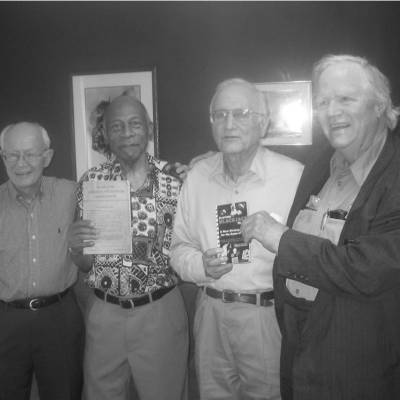
Wilbert Cantey
Childhood
Wilbert "Preach" Cantey was born in Columbia, South Carolina, and displayed exceptional intellect from a young age. He graduated high school at just 15 and earned bachelor’s degrees in applied mathematics and teaching from Benedict College. Initially, Cantey pursued seminary training to become a priest but was encouraged to leave due to his love for pool hustling and card games—a hint of his future connection to gambling strategy.
Career
Military Service & Mathematical Breakthrough (1950s)
While serving as a sergeant at Aberdeen Proving Ground (Maryland), Cantey met Roger Baldwin, Herbert Maisel, and James McDermott. Together, they tackled a challenge: finding the optimal way to play blackjack.
Using only desk calculators (adding machines), they spent 18 months calculating probabilities for thousands of hands 24. In 1956, they published their findings in the Journal of the American Statistical Association, introducing the first mathematically accurate basic strategy.
Their 1957 book, Playing Blackjack to Win, included the first legitimate card-counting system, though it didn’t guarantee long-term profits.
Later Career (Post-Army)
After leaving the military, Cantey worked in:
- Government research (State Department’s Arms Control Agency)
- Federal Railroad Administration (as deputy director in operations research)
-
Consulting & teaching, including at Howard University.
Personal life
Married Lottie Burris Cantey in 1956 after meeting at a Washington, D.C.
A family man, he had two children (Janalyn and Wilbert Jr.) and was deeply involved in community initiatives, including integrating schools and housing near Aberdeen.
He is known for his love of jazz, religious music, and card games (especially poker and bridge).
Died on May 21, 2008, from pancreatic cancer at age 77.
Revenue
Their book earned minimal royalties—McDermott joked he made $23 total.
Despite not profiting directly, their work enabled modern advantage players (like Ed Thorp and MIT teams) to win millions.
Interesting facts
- He was nicknamed "Preach" for reciting Bible verses.
- The Four Horsemen’s strategy was so accurate that later computer simulations found it had a 0.1% player edge—unheard of at the time.
- Their book’s cover photo was removed to avoid Southern backlash (Cantey was the only Black member).
-
Cantey never pursued professional gambling, believing the house still had an edge.
Legacy
He was inducted into the Blackjack Hall of Fame (2008) alongside his teammates. Inspired by Ed Thorp’s Beat the Dealer (1962), the book popularized card counting.
It paved the way for MIT teams, Stanford Wong and Ken Uston. Their strategy remains the foundation of modern blackjack play.
Frequently asked Questions
No. The Four Horsemen earned almost nothing from their book, but their work enabled later players to profit.
Extremely—within 0.02% of perfect play, even by modern standards.
They believed the house still had an edge. Later, Thorp proved card counting could beat casinos.
As a sergeant and mathematician, he provided critical calculations and strategic insights.
Pancreatic cancer on May 21, 2008, at age 77.
















